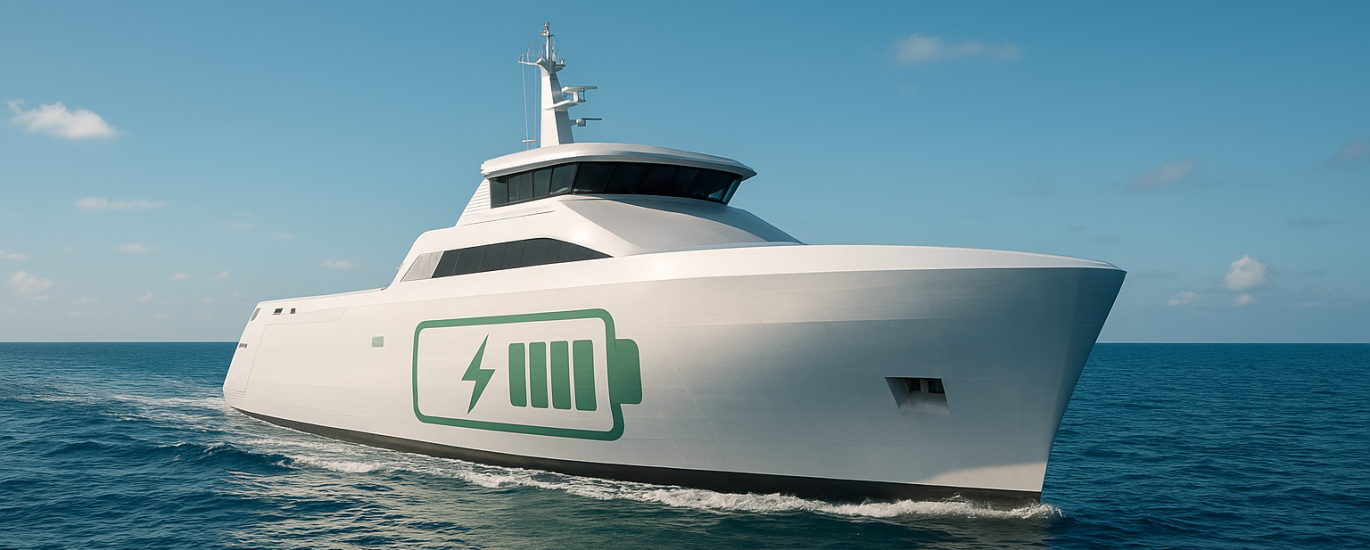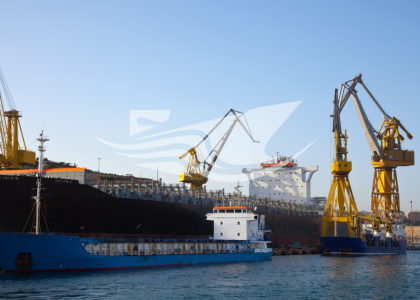The maritime industry is on the cusp of a revolutionary transformation, driven by an urgent need for sustainability and reduced environmental impact. At the forefront of this change is the rise of electric vessels, offering a promising pathway to cleaner, more efficient shipping operations. Central to this paradigm shift is the sophisticated integration of Battery Power, which demands meticulous design and engineering expertise. This article delves into the critical considerations for designing these innovative ships, ensuring they are not only environmentally friendly but also operationally robust and economically viable.
The Imperative for Ship Electrification
The push for Ship Electrification is fueled by several factors, including stringent environmental regulations, corporate sustainability goals, and the economic benefits of reduced fuel consumption and maintenance. Traditional fossil-fuel-powered vessels contribute significantly to greenhouse gas emissions and air pollution, prompting a global call for cleaner alternatives. Electric propulsion eliminates direct emissions, leading to improved air quality in ports and coastal areas, and significantly lowering a vessel’s carbon footprint. This transition represents a monumental step towards a greener, more sustainable maritime future.
Beyond environmental advantages, electric vessels offer operational benefits such as quieter operation, reduced vibrations, and potentially lower long-term operating costs due to less complex machinery and lower fuel price volatility. The technology is rapidly maturing, making it an increasingly viable option for various vessel types, from ferries and tugboats to offshore support vessels and even short-sea cargo ships.
Challenges in Designing for Battery Power
While the benefits are clear, designing electric vessels, particularly those heavily reliant on Battery Power, presents unique challenges. The primary hurdles include:
- Weight and Volume: Batteries are dense and bulky, requiring careful integration into the vessel’s structure without compromising stability or cargo capacity.
- Thermal Management: Maintaining optimal operating temperatures for batteries is crucial for performance, longevity, and safety. Efficient cooling and heating systems are essential.
- Safety: Lithium-ion batteries, while powerful, pose thermal runaway risks if not properly managed. Robust safety systems, including fire suppression and fault detection, are paramount.
- Range and Charging Infrastructure: The energy density of current batteries limits the range of all-electric vessels, necessitating strategic route planning and the development of adequate charging infrastructure in ports.
Addressing these challenges requires a holistic design approach that considers every aspect of the vessel’s operation and lifecycle.
Key Design Considerations for Electric Vessels
Successful design of Electric Vessels hinges on optimizing several interconnected elements:
Hull and Propulsion System Optimization
The hull form must be optimized for minimal hydrodynamic resistance to maximize the efficiency of the electric propulsion system and extend battery range. Advanced computational fluid dynamics (CFD) can be employed to refine hull shapes. The selection of electric motors, propellers, and thrusters must be meticulously matched to the vessel’s operational profile and the battery system’s output. Direct drive systems or integrated electric drive units can enhance efficiency and simplify machinery spaces.
Battery System Selection and Integration
Choosing the right battery chemistry (e.g., Lithium-ion, LFP) depends on the vessel’s specific requirements for energy density, power output, cycle life, and safety. Batteries must be housed in dedicated, fire-resistant compartments with robust ventilation and explosion protection. Modularity in battery pack design allows for easier maintenance, replacement, and scalability. Strategic placement ensures weight distribution maintains vessel stability and trim.
Energy Management Systems
An intelligent energy management system (EMS) is vital for optimizing battery usage, monitoring charge and discharge cycles, and integrating with other power sources (e.g., generators in hybrid systems, shore power). The EMS ensures the battery operates within safe parameters and extends its lifespan.
Power your future with electric vessels. We provide cutting-edge design for innovative battery integration. Contact us to discuss your project!
The Role of Advanced Battery Management Systems (BMS)
At the heart of reliable Battery Power in electric vessels is an advanced Battery Management System (BMS). The BMS continuously monitors crucial parameters such as cell voltage, current, temperature, and state of charge (SoC), ensuring safe and efficient operation. It plays a critical role in balancing cell voltages, protecting against overcharge/discharge, and facilitating accurate range predictions. A sophisticated BMS extends battery lifespan, prevents potential hazards, and provides valuable data for predictive maintenance, making it an indispensable component for any electric fleet.
These systems are often integrated with the vessel’s overall control and monitoring systems, providing the crew with real-time insights into the power plant’s status and performance. This level of oversight is crucial for operational safety and efficiency in a complex marine environment.
Future Outlook: Scaling Up Electric Vessel Fleets
The future of electric vessels is bright, with ongoing advancements in battery technology promising higher energy densities, faster charging capabilities, and improved safety. Hybrid electric solutions, combining batteries with conventional or alternative fuels, are bridging the gap for longer-range applications. Furthermore, the development of robust shore-side charging infrastructure and grid integration will be crucial for scaling up electric vessel fleets globally. As design expertise evolves and technology matures, the economic and environmental case for Ship Electrification will only grow stronger, propelling the maritime industry towards a truly sustainable era.
Ready for an electric fleet? Leverage our expertise in battery-powered vessel design for sustainable operations. Explore our ship electrification solutions.







